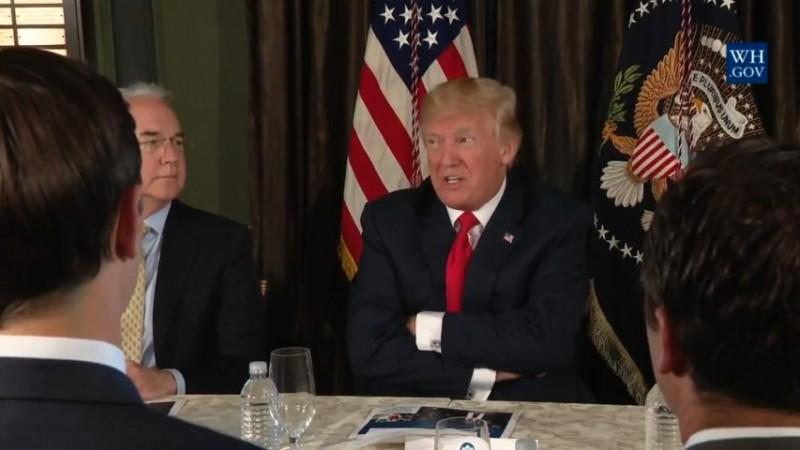Will US President Donald Trump follow his ultra-tough words on North Korea with matching actions? Trump, who became the president in January this year after riding a wave of nationalism, made the startling remark on Tuesday, August 8, saying any further provocations from Kim Jong-un's pariah state will be met with "fire and fire like the world has seen never before".
Many have compared the situation with that of the Cuban missile crisis of 1962 when the US had almost entered into a war with the erstwhile Soviet Union but a timely role played by the United Nations had seen the world live another day.
A White House official also has underscored the American "hyperpower" in this episode, making the feeling evident that no matter how much the country's leadership asserts a 'look within' stance to make its domestic scenario strong and thriving, old habits die hard. At the end of the day, Washington requires an external threat to assert its worthiness on this planet.

Even Trump's own hand-picked administration is divided over the North Korean crisis. While the president's defence secretary and national security adviser are of the opinion that Pyongyang indeed is a serious concern, the more nationalist Steve Bannon thinks the issue is a part of the China problem and there was no requirement for Washington to give that much significance to the Kim regime.
But Trump can't overlook the temptation of power play abroad
But it seems Trump has decided to dump his electoral stand when it comes to the rogue Kim regime and his harsh statement makes him look like some of his hawkish predecessors who cared little to unleash the military power to crush non-complying regimes abroad.
Both the US and North Korea, although having completely different political systems, are banking on the same nationalist energy while taking each other in the latest crisis. Reason suggests that none will really go for a first strike and invite complete annihilation and remain playing the game of brinkmanship but Kim indeed exposed Trump's hypocrisy of pledging for America's own first before his supporters.

If the man enters into an armed conflict with North Korea, he will be cursed for not honouring international accords like the Paris climate deal for the betterment of this planet, citing America's interest as the excuse, but yet going to a war abroad which will have a terrible consequence, even for some of Washington's own allies in the region.
China, for a change, is a centrist party
China, on the other hand, is looking more a centrist force in this moment of escalation, unlike how it is generally seen in matters of international conflicts with its neighbours. Beijing will certainly not want a fall of the Kim regime for it would demolish its buffer with the US and its allies like South Korea and Japan but also pose threat to its own economy by means of a refugee exodus. But at the same time, the Chinese are helpless in the situation for they have neither been able to rein in North Korea nor placate the US from going to a direct confrontation.














